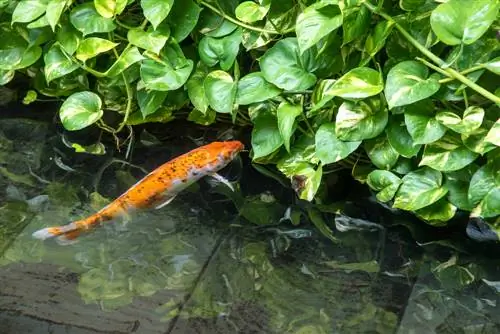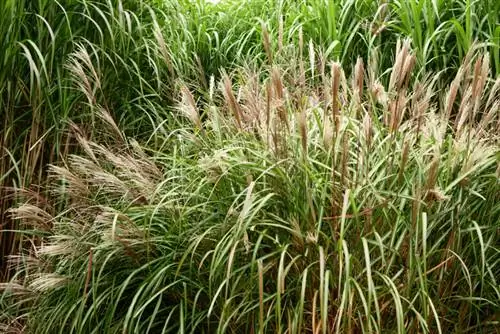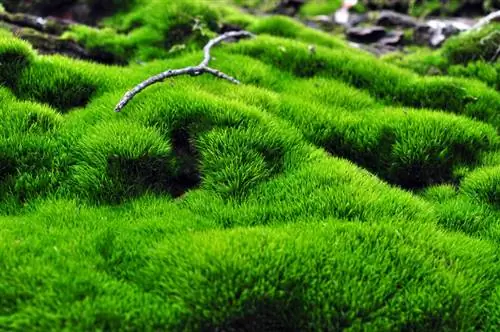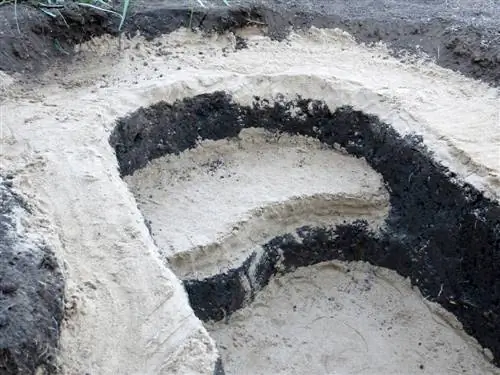- Author admin leonars@hobbygardeners.com.
- Public 2023-12-16 16:46.
- Last modified 2025-01-23 11:21.
A swimming pond with fish is technically not a significant problem, but is not recommended for hygienic reasons. The contamination from the animals causes the biological balance of the natural pool to tip, so that bathing fun quickly decreases due to the increasing nutrient content.
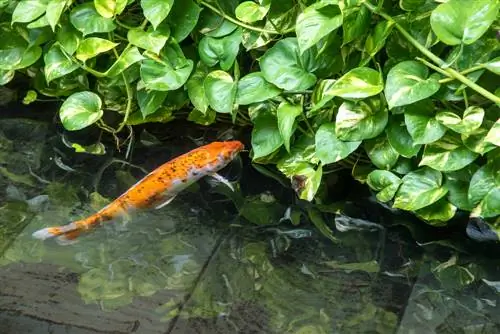
Is a swimming pond with fish recommended?
A swimming pond with fish is not recommended for hygienic reasons, as fish contaminate the water and disrupt the biological balance. It is better to create separate areas for swimming and fishing.
What works excellently in normal bathing lakes does not necessarily work in a swimming pond. In the long run, an untroubled coexistence between bathers and fish causes several problems. As cute as the animals may be, they contribute significantly to the contamination of the pond water, so having fish in the natural pool is more than questionable for hygienic reasons. In addition, people who bathe in pond water cause considerable stress to the fish, as they use the pond with the aquatic plants as natural cover and therefore consider it their own retreat.
Fish and their excrement
A swimming pond with fish will cause increased algae formation in the natural pool within a very short time as a result of their excretions. By flapping their fins, the animals also stir up the sedimented sludge that accumulates at the bottom of the pond, which leads to accelerated mineralization. Organic substances become inorganic, which ultimately can no longer be broken down naturally. In addition, most fish species feed on amphipods, which were originally intended to act as biological water filters in swimming ponds.
Note legal differences
While it probably has no impact on the provisions of the country-specific building legislation whether the natural pool is a fish pond or a swimming pond, it must be noted that there are different strict water guidelines for both types of ponds that must be adhered to. Therefore, the legislature actually already rules out the possibility that a pool with fish is also a swimming pond.
Exceptional case of rudd vs. cercariae
Harmful microorganisms create cercariae, which are very unpleasant for our human skin. Anyone who has been running a swimming pond for a long time is familiar with these fluke worms, which spread quickly, especially at higher water temperatures, and are sometimes brought into the pool by ducks. In such cases, a single tench or rudd can be used as a natural opponent, which feeds on, among other things, cercariae. More than one fish is not recommended as the animals reproduce too quickly under such favorable conditions.
Tip
Sunfish, red lizards and golden tench significantly increase the liveliness of a pond and there is certainly a little space on the property for a smaller fish pond. As a precaution, we have already summarized the best way to do it in a guide article for you.

